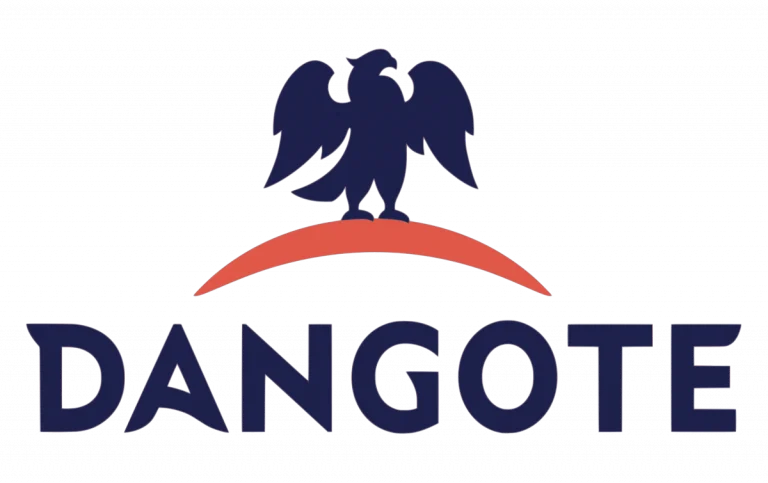Business
15 Things To Know About The Domestic Dollar Bond

The Federal Government of Nigeria has successfully issued a $500 million domestic dollar bond with an attractive 9.75% interest rate for investors.
This inaugural bond in the Nigerian capital market is designed to support infrastructure development, promote financial inclusion, and strengthen the domestic securities market.
1. Minimum Investment
The minimum investment is $10,000 with increments of $1,000 thereafter.
2. Interest Rate
The bond offers a 9.75 percent interest rate, paid semi-annually. For a $10,000 investment, investors can expect $487.5 in interest every six months for five years, with the principal returned at the end of the term.
3. Issuance Purpose
The Federal Government’s domestic dollar bond, a $2 billion programme to be raised in four batches of $500 million each.
The bond aims to support infrastructure development, financial inclusion, and deepen the domestic securities market. The proceeds will be invested in critical sectors of the economy, subject to presidential approval and National Assembly appropriation.
4. Eligible Investors
Nigerians, non-Nigerians resident in Nigeria, Nigerians in the diaspora, and Qualified Institutional Investors.
5. Issuance Duration
The offer was open from August 19 to August 30.
6. Bond Tenor
The bond has a five-year tenor.
7. Tax Benefits
Interest on the bond is exempt from Company Income Tax, Personal Income Tax, and Capital Gains Tax.
8. Investment Advantages
Local investors enjoy higher returns compared to domiciliary account interest rates. For Nigerians in the diaspora, it offers higher returns than in their countries of residence.
READ ALSO: 5 Clever Ways To Outsmart Lagos Traffic
9. Risk
Government securities are considered risk-free due to government backing.
10. Listing
The bond is listed on the Nigerian Exchange Limited (NGX) and FMDQ OTC Securities Exchange Limited.
11. Financial Advisers and Issuing Houses
Meristem Capital Limited, Stanbic IBTC, and Vetiva are the issuing houses, with United Capital as the lead. The African Finance Corporation is the global coordinator, with Constant Capital and Iron Capital as financial advisers.
12. Differentiation from Local FGN Bonds and Eurobonds:
The domestic dollar bond is issued locally in dollars and has a minimum investable amount of $10,000, while Eurobonds are issued abroad in foreign currencies and have a $200,000 minimum subscription amount .
READ ALSO: Police Confirm Arrest Of 97 Shi’ites Over Attack On Officers In Abuja
The domestic bond not only lowers the barrier of entry for several thousands of Nigerians, it also offers better returns to investors in Nigerian Eurobonds.
At 9.75 percent, the coupon of the five-year domestic dollar bond exceeds the 9.58 percent yield on the Federal Government’s $1.25 billion 2029 Eurobond which matures in five years’ time.
The FGN bonds are local bonds denominated in naira, so its interest and capital is paid in naira.
13. Payment Method
Payment is made of both capital and interest is made in dollars through the Nigerian banking system and electronic transfers.
14. Bank Verification Number (BVN)
Investors, including those in the diaspora, are required to provide their BVN.
15. Payment Method
Payment is made of both capital and interest is made in dollars through the Nigerian banking system and electronic transfers.
Business
NNPCL Announces Restoration Of Escravos-Lagos Pipeline

The Nigerian National Petroleum Company Limited (NNPCL) has announced the complete restoration of the Escravos-Lagos Pipeline System (ELPS) in Warri, Delta State, following the recent explosion on the asset.
The chief corporate communications officer (CCCO) of the nation’s oil company, Andy Odeh, in a statement, said that the pipeline is fully operational, reiterating the company’s resilience and commitment to energy security.
“NNPC Limited is pleased to announce the successful restoration of the Escravos-Lagos Pipeline System (ELPS) in Warri, Delta State.
READ ALSO:Fuel Price Cut: NNPCL GCEO Ojulari Reveals Biggest Beneficiaries
“Following the unexpected explosion on December 10, 2025, we immediately activated our emergency response, deployed coordinated containment measures, and worked tirelessly with multidisciplinary teams to ensure the damaged section was repaired, pressure-tested, and safely recommissioned.
“Today, the pipeline is fully operational, reaffirming our resilience and commitment to energy security. This achievement was made possible through the unwavering support of our host communities, the guidance of regulators, the vigilance of security agencies, and the dedication of our partners and staff.
“Together, we turned a challenging moment into a success story, restoring operations in record time while upholding the highest standards of safety and environmental stewardship.
“As we move forward, NNPC Limited remains steadfast in its pledge to protect our environment, safeguard our communities, and maintain the integrity and reliability of our assets. Thank you for your trust as we continue to power progress for Nigeria and beyond,” the statement read.
Business
Dangote Unveils 10-day Credit Facility For Petrol Station Owners

The Dangote Group has announced a 10-day credit facility backed by a bank guarantee for petrol station owners and dealers, alongside free direct delivery and other incentives, as part of a new supply arrangement.
The company disclosed this in a statement posted on its official X handle on Tuesday, inviting petrol station operators across the country to register to benefit from the offer.
According to the statement, participating dealers will enjoy “a 10-day credit facility backed by a bank guarantee,” with a minimum order requirement of 5,000 litres.
“Our free direct delivery service will commence soon,” the group said, adding that the offer is open to “all petrol station owners and dealers.”
READ ALSO:Dangote Sugar Announces South New CEO
The Dangote Group further called on operators to register their stations to access the supply arrangement.
“Register your petrol stations today to benefit from our competitive gantry price,” the statement read.
The company also disclosed that petrol supplied under the arrangement will be sold at a gantry price of ₦699 per litre.
For enquiries, the group provided the following contact numbers: 0802-347-0470, 0809-324-7070, 0809-324-7071 and 0203.
READ ALSO:Dangote Refinery Dispute: PENGASSAN Suspends Strike After FG Intervention
The announcement follows a recent petrol price adjustment by the Dangote Petroleum Refinery.
The PUNCH earlier reported that the refinery reduced its ex-depot petrol price from ₦828 to ₦699 per litre, representing a ₦129 cut or a 15.58 per cent reduction.
An official of the refinery, who spoke to PUNCH Online on condition of anonymity, confirmed the adjustment, saying, “The refinery has reduced petrol gantry price to ₦699 per litre.”
The new price reportedly took effect on December 11, 2025, marking the 20th petrol price adjustment announced by the refinery this year.
Business
JUST IN: Otedola Sells Shares In Geregu Power For N1trn

Billionaire businessman, Femi Otedola, has sold his majority stake in Geregu Power Plc for N1.088 trillion in a deal financed by a consortium of banks led by Zenith Bank Plc.
The Nigerian Exchange, NGX, made this announcement on Monday.
Otedola’s Amperion Power Distribution Company Ltd reportedly held nearly 80 percent of the power generating company.
READ ALSO:N200b Agric Credit Dispute: Appeal Court Slams NAIC, Upholds First Bank Victory
With this new development, Otedola, Chairman of First Holdco Ltd, parent company of First Bank of Nigeria Plc, will reportedly now concentrate on expanding his interest in the Nigerian banking sector, although he still retains some shares in Geregu.
Otedola is said to currently own 17.01 percent of First Bank — its single largest shareholder since the bank was established in 1894.

 News5 days ago
News5 days agoOkpebholo Slams ₦25bn Libel Suit On Edo PDP Chairman

 Headline5 days ago
Headline5 days agoJUST IN: US Forces Bomb Terrorists Camps In Nigeria

 Headline4 days ago
Headline4 days agoUS Dept Of War Shares Video Of Air Strikes In Nigeria

 News4 days ago
News4 days agoPHOTOS: SGF George Akume Weds Ooni’s Ex-Queen

 News2 days ago
News2 days agoEx-Edo Gov Obaseki Reacts As His Cousin Is Beaten, Stripped

 News1 day ago
News1 day agoBREAKING: Anthony Joshua Involved In Road Accident

 News4 days ago
News4 days agoTrump’s Airstrikes: Halt Military Cooperation With US Immediately – Sheikh Gumi Tells Tinubu Govt

 News4 days ago
News4 days agoShehu Sani Reacts To Trump’s Military Strikes In Nigeria

 Headline4 days ago
Headline4 days agoU.S. Lawmaker Reacts To Nigeria, U.S. Airstrikes

 News5 days ago
News5 days agoChristmas: Otuaro Preaches Peace, Unity In N’Delta, Hails Tinubu’s Support For PAP




























